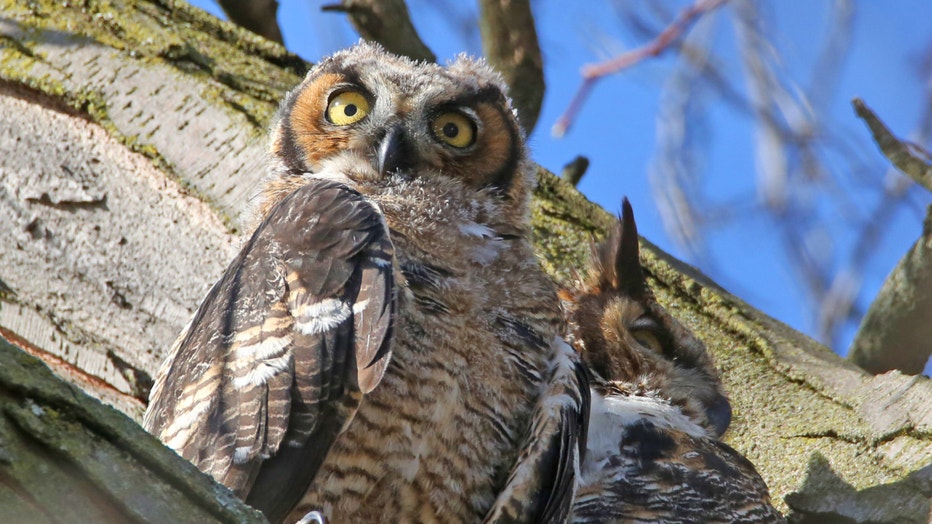Great horned owl family in Lincoln Park dies of suspected rat poison
CHICAGO - The death of another great horned owl in Lincoln Park is causing concern among urban wildlife advocates. The female owl is the third member of an owl family to die near the North Pond in recent weeks, and experts say rat poison is likely to blame.
On Thursday morning, the owl was found covered in blood and was taken to the Willowbrook Wildlife Center in DuPage County, where she will receive a necropsy.
The troubling discovery came just weeks after her male partner and their baby suffered the same fate. The male owl was found dead in mid-April, while the owlet was discovered late last month.
Bird watchers said the male and female owls welcomed their owlet this spring – capturing the attention of neighbors.
Annette Prince, the director of Chicago Bird Collision Monitors (CBCM), said the great horned owl family was a beloved part of the community.
"They were a wonderful family. They gave everyone a beautiful show of how they were raising their baby, but unfortunately, the food that they fed that baby possibly came from rodents that had eaten toxic rodenticide," Prince said.
Prince said when animals ingest rat poison, it can cause uncontrollable internal bleeding and lead to death.
In some cases, animals are poisoned directly by consuming pellets or other bait. Experts said in this case, it is more likely the great horned owl family unknowingly hunted prey that had previously ingested rat poison.
"It’s a secondary poisoning by eating a prey item. And that happens to any wildlife, like a coyote or fox, anything else that might feed on a rat or a mouse," said Prince.

A juvenile great horned owl, left, sits next to its mother in a tree near North Pond in Lincoln Park on April 14, 2024. (Robert Loerzel/Chicago Tribune/Tribune News Service via Getty Images)
As mentioned by Prince, owls aren’t the only animals at risk. An attempt to control Chicago’s rat problem is coming at the expense of wildlife in local parks and forest preserves.
"We do know rodenticide is incredibly common across the landscape," said Seth Magle, director of the Urban Wildlife Institute at Lincoln Park Zoo. "It’s a real problem."
Magle said the Urban Wildlife Institute recently made a disturbing discovery during a research study.
"We tested 93 raccoons, skunks and opossum, and 100 percent of them had been exposed to rodenticide," said Magle.
Now, Prince and Magle said they are encouraging the city to utilize less-toxic alternatives for rodent control.
"Chicago has such wonderful animals that live in our parks and forest preserves, and we want to see them protected," said Prince.
"We actually find that something simple like a snap trap is actually much safer for other species of wildlife than these rodenticides," said Magle.
They also said the best way to reduce the number of rats in our city is to maintain – and contain – trash. Everyone can play a role in supporting urban wildlife by keeping their garbage in check.
"In the long term, rodenticide isn’t the way we’re really going to get a handle on our rat problem. The way we’re going to do that is by controlling our trash," said Magle. "It’s the trash that attracts these huge populations of rats. We’re just putting food out for them everywhere."
Chicago residents are encouraged to check the condition of their city-issued garbage bin. If yours is damaged, you can request a replacement – free of charge – by clicking HERE or by calling 311.

